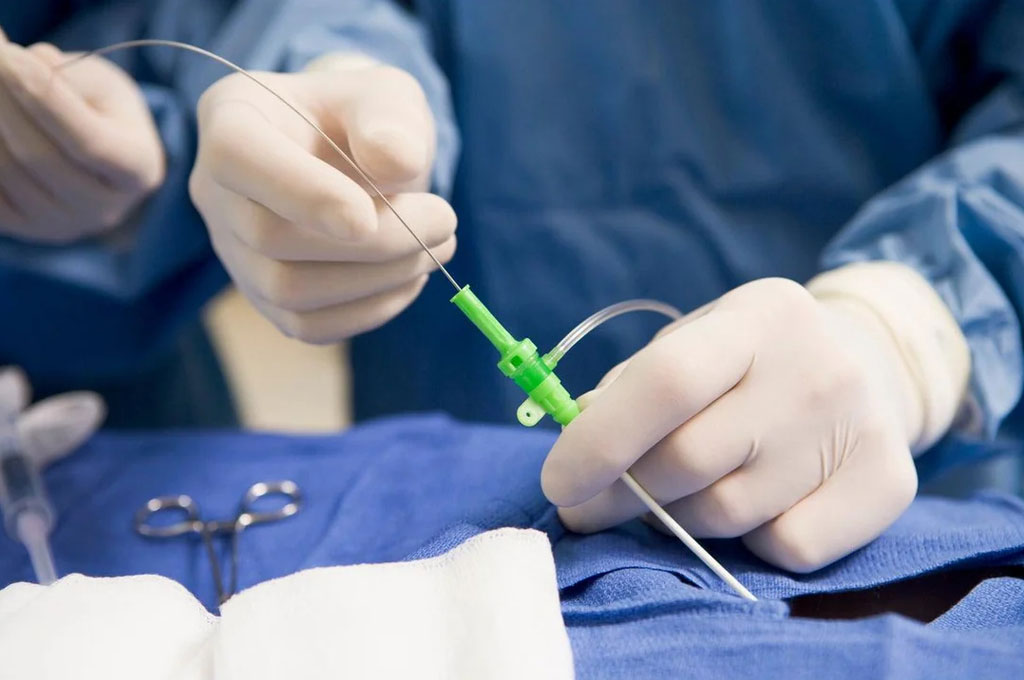In the medical industry, where reliability, biocompatibility, and precision are paramount, PTFE (Polytetrafluoroethylene) capillary tubing has emerged as a critical component in a wide range of devices and systems. Its unique combination of chemical inertness, flexibility, thermal resistance, and biocompatibility allows it to meet the demanding standards of modern healthcare applications.
This article explores the diverse applications of PTFE capillary tubing within the medical field, highlighting the specific advantages that make it an indispensable medical material.
1. Intravenous (IV) Delivery Systems
PTFE capillary tubing is extensively used in intravenous delivery systems, which are essential for administering fluids, medications, and nutrients directly into a patient’s bloodstream. The tubing’s chemical inertness ensures that it does not leach contaminants or chemically interact with the IV fluids, preserving the integrity and efficacy of the treatment.
The smooth inner surface of PTFE tubing facilitates consistent flow rates, which is vital for precise dosing, especially in critical care or chemotherapy where even small deviations can have significant consequences. Moreover, PTFE’s resistance to temperature variations allows the tubing to withstand sterilization and maintain performance in varied clinical environments, from emergency rooms to outpatient clinics.
2. Catheters and Microcatheters
Invasive procedures like catheterization demand materials that minimize patient discomfort and reduce tissue damage. PTFE tubing’s excellent lubricity makes it easier for catheters and microcatheters to glide through veins, arteries, or other narrow anatomical channels without causing friction-induced injury.
Its biocompatibility means PTFE tubing is well tolerated by tissues, reducing inflammation or immune responses that can complicate procedures. Additionally, PTFE’s flexibility combined with kink resistance enables clinicians to precisely maneuver catheters through tortuous vascular pathways during cardiovascular interventions, neurological treatments, or urological diagnostics. The result is safer, more effective treatments with improved patient outcomes.
3. Medical Diagnostic Equipment
Accurate diagnostics rely on the integrity of samples and reagents. PTFE capillary tubing is extensively used in blood analyzers, chromatography systems, and other diagnostic instruments to transport fluids without contamination or chemical interaction.
Its exceptional chemical resistance ensures that the tubing can safely carry aggressive reagents used in chemical assays or blood tests. PTFE tubing’s thermal stability supports operations in processes requiring controlled heating or cooling, such as polymerase chain reactions (PCR) or other biochemical assays. The tubing’s inert nature ensures that diagnostic results are reliable and reproducible, which is critical for disease detection, monitoring, and research.
4. Fluid and Gas Delivery Systems
Many medical devices depend on the accurate delivery of fluids and gases. Respiratory equipment, anesthesia machines, and dialysis units rely on tubing that maintains the purity and consistency of gases and liquids.
PTFE capillary tubing’s resistance to chemicals and its non-reactive surface prevent contamination or alteration of gases like oxygen or anesthetic agents, ensuring patient safety. The tubing can endure repeated sterilization cycles using autoclaving or gamma radiation without losing its structural integrity, which makes it suitable for reusable medical equipment. Its ability to maintain precise flow characteristics under variable pressures and temperatures is essential for device accuracy.
5. Drug Delivery and Infusion Pumps
Modern drug delivery systems require highly controlled fluid dynamics to administer precise doses, often in very small volumes. PTFE capillary tubing’s dimensional accuracy and smooth internal surface allow for stable flow rates and minimal adsorption of drugs onto the tubing walls.
This makes PTFE tubing ideal for use in infusion pumps that deliver chemotherapy drugs, insulin, or pain medication. The tubing ensures consistent delivery rates and protects sensitive medications from contamination or degradation, thereby improving treatment efficacy and patient safety.
6. Implantable Devices
PTFE’s biocompatibility and chemical stability have led to its use in some implantable devices, where long-term interaction with bodily tissues occurs. For example, PTFE tubing can act as a protective lining or conduit within implantable electronics, such as sensors or neurostimulators.
7. Laboratory and Research Applications
Beyond clinical use, PTFE capillary tubing is indispensable in medical research laboratories. Its chemical inertness allows researchers to safely handle aggressive reagents and solvents during experimental procedures.
Additionally, PTFE tubing’s ability to withstand repeated sterilization cycles facilitates contamination-free experiments and supports high-precision setups such as microfluidics, chromatography, and mass spectrometry.

